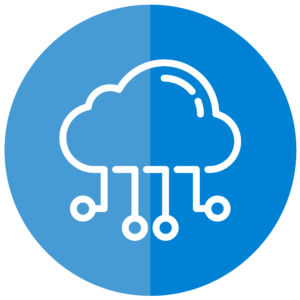In our rapidly changing and globally connected world, nothing stays fixed for long in today’s world. Technology steadily advances and refines itself to address future societal demands.The World Wide Web exemplifies this trend; its next incarnation, known as Web3, is already emerging.Web3 is the next-generation internet, powered by decentralisation, clear transparency, and automated workflows.Blockchain technology is the foundation of this movement,an immutable blockchain that stores time-stamped, verifiable transactions.Smart contracts—autonomous programs recorded on the blockchain—automate transactions between parties, eliminating intermediary intervention.These mechanisms decrease reconciliation efforts, eliminate manual inaccuracies, and cultivate a shared, verifiable trust across organisations. Blockchain technologies are essential to business processes for African businesses.Transforming blockchain technology is essential to business operations for African companies.Public blockchains can present scalability and governance limitations; permissioned or hybrid architectures provide more controlled operational environments.Confidentiality-enhancing methods, including zero-knowledge proofs and private channels,enable organisations to fulfil compliance obligations while preserving the advantages of decentralised architectures.Effectively implemented, Web3 and blockchain technologies enable African enterprises to improve operational efficiency, create novel business models, bolster security, and cultivate trust among stakeholders.Careful alignment of technical architecture, governance frameworks, and compliance measures is required to realise scalable blockchain solutions suited to the region’s unique context.
The web of Trust : How Decentralised Identity Will Shape the Future
If we want to know where decentralized identity is going, let’s first look at where it stands today. Here, the Web of Trust Decentralized Identity Map plays its role, serving as a constantly updated resource that monitors adoption across sectors and governments.It identifies the countries and industries moving forward, and those where momentum is still slow.
Scalable Blockchain Infrastructure for African Businesses
To integrate Web3 effectively, African enterprises need blockchain infrastructure that can scale — ensuring fast, reliable service and a great user experience. Because many African economies deal with huge volumes, cross-border payments and diverse regulatory regimes, building blockchain infrastructure that is both resilient and cost-effective is crucial. Blockchain technology transformation is crucial to business operations for African businesses. Blockchain technologies are essential to business operations for African companies. Blockchain solutions must be transformed for African businesses to function properly. Additionally, enterprise readiness and scalability are closely related: systems must seamlessly link with current ERPs, financial platforms, supply chain tools, and identity solutions. Because they provide excellent performance while permitting stringent control over governance, access rights, and data protection, hybrid and permissioned blockchains frequently function well for African organizations. Scalable blockchain infrastructure, when properly deployed, helps African companies increase operational effectiveness, lower fraud, increase transparency, and open up new digital business models—all of which contribute to the continent’s long-term economic success.
Smart Contracts for Automating Business Workflows
Smart contracts are blockchain-based, self-executing programs that automatically uphold agreements between parties without the need for middlemen. These digital contracts simplify operations for African companies by eliminating manual stages that frequently cause delays or errors. Instantaneous and transparent execution is possible for tasks including payment verification, supply chain milestone validation, product release, invoice issuance, and claim processing. By eliminating reconciliation effort, cutting down on delays, and guaranteeing that every action is documented on an unchangeable ledger, this automation fosters trust between partners who may operate in different nations, industries, or regulatory frameworks. Smart contracts give African businesses dependable, safe, and economical workflows since they operate according to predetermined conditions. Automated procedures that adjust to huge transaction volumes and cross-border activities are advantageous to industries like agriculture, logistics, banking, and energy. Businesses can achieve smooth end-to-end automation by connecting smart contracts with current enterprise systems, such as ERP platforms, IoT sensors, or digital identity solutions.In addition to increasing productivity, this lowers fraud, improves compliance, and facilitates the development of new blockchain-powered business models. In the end, smart contracts give African businesses a potent instrument to upgrade operations and compete in a world economy that is fast going digital.
Find out how eTraverse helps companies leverage Blockchain and Digital Assets
Our employees at eTraverse collaborate with clients, authorities, and legislators worldwide to comprehend how blockchain technology and digital assets are transforming modern business and governance.In order to disrupt established business models and develop novel ones, new ecosystems are creating blockchain-based infrastructure and solutions. This is happening in almost every sector of the economy and in the majority of countries worldwide. Our extensive business knowledge and industry-leading audit and assurance, consulting, tax, and risk and financial services. Our extensive business knowledge and world-class audit and assurance, consulting, tax, and risk and financial advisory services enable businesses in a variety of sectors to realize their diverse blockchain goals.
Conclusion
Web3 is no longer a faraway concept—it is becoming a core element for how African firms operate, scale, and compete in a digital global market. African businesses could reach an unprecedented degree of efficiency, trust, and transparency via the implementation of decentralized architectures, secure digital identities, scalable blockchain technology, and automated smart-contract workflows.These modern innovations not only expedite intricate procedures but also enable completely novel companies tailored to the region’s unique socioeconomic landscape.
When performed properly, Web3 becomes a strategic enabler—helping organizations decrease fraud, increase compliance, optimize cross-border processes, and safely engage in a fast expanding digital economy.To make these opportunities a reality, we at eTraverse collaborate with organizations, authorities, and entrepreneurs. By fusing cutting-edge blockchain and digital asset capabilities with in-depth industry knowledge.













